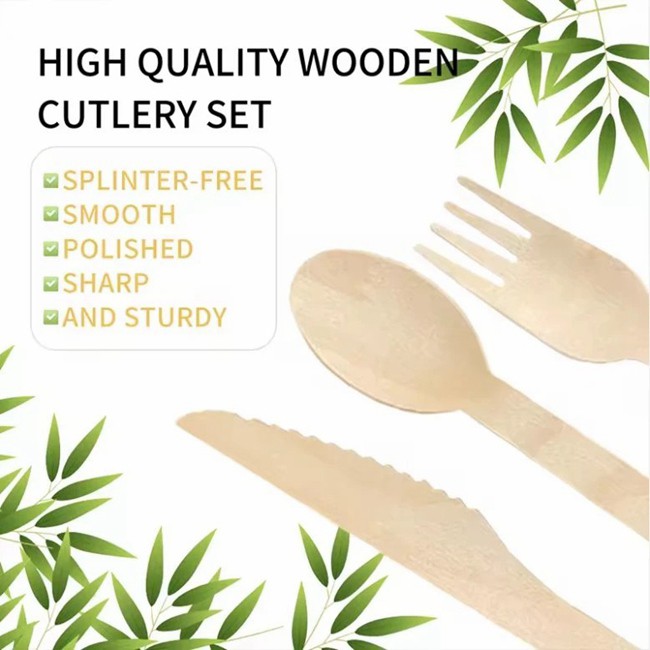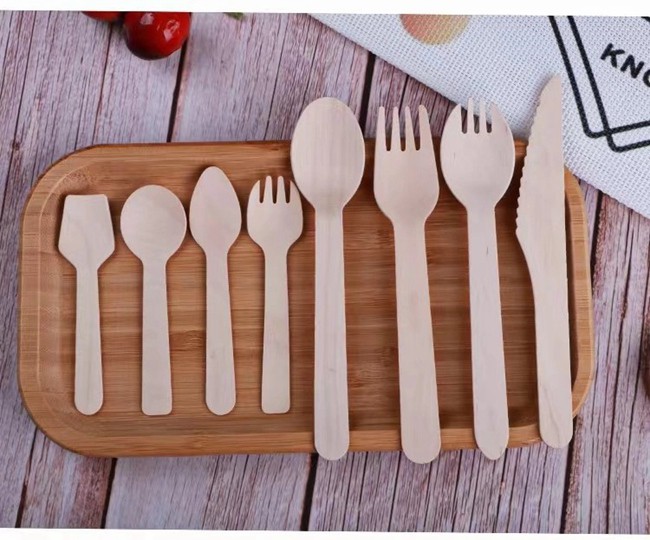Free Samples Disposable Cutlery, Fork and Spoon Environmentally Degradable Cutlery
Product description
Biodegradable knives and forks represent a step towards a more sustainable future. By choosing these eco-friendly options, consumers can contribute to the reduction of plastic pollution and support the use of renewable resources. As awareness of environmental issues continues to grow, the demand for biodegradable cutlery is likely to increase, driving further innovation and improvement in this important area of sustainable living.
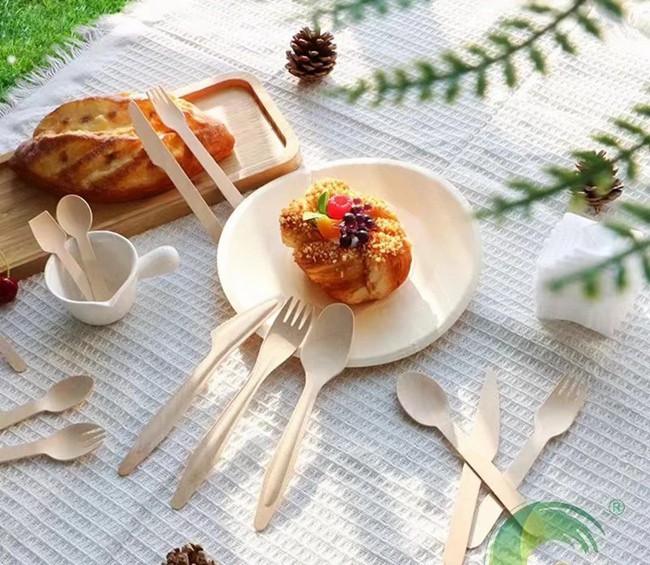
Types of Biodegradable Cutlery
Biodegradable knives and forks are made from a variety of materials, each with its own unique properties and benefits:
PLA (Polylactic Acid): Derived from renewable resources like corn starch, PLA is a popular material for biodegradable cutlery. It is compostable in industrial composting facilities.
Bagasse: The fibrous residue left after sugarcane has been crushed to extract its juice. Bagasse is a byproduct of the sugarcane industry and is 100% biodegradable.
Bamboo: Known for its durability and sustainability, bamboo cutlery is both strong and eco-friendly. Bamboo is one of the fastest-growing plants on Earth, making it a highly renewable resource.
Birchwood: Birchwood cutlery is made from the branches of birch trees, which are harvested in a way that does not harm the main tree. It is compostable and adds valuable nutrients back to the soil.

Benefits of Biodegradable Knives and Forks
1. Environmental Friendliness: The primary advantage of biodegradable cutlery is its reduced impact on the environment. Unlike plastic cutlery, which can take hundreds of years to decompose, biodegradable utensils break down much faster, depending on the material and conditions.
2. Reduced Landfill Waste: By using cutlery that decomposes naturally, we can decrease the amount of waste that ends up in landfills. This helps to alleviate the strain on our waste management systems and reduces the pollution associated with plastic production and disposal.
3. Support for Renewable Resources: Many biodegradable utensils are made from renewable resources such as corn starch, bamboo, or sugarcane. This means that the production of these items does not contribute to the depletion of non-renewable resources like oil, which is used to make traditional plastics.
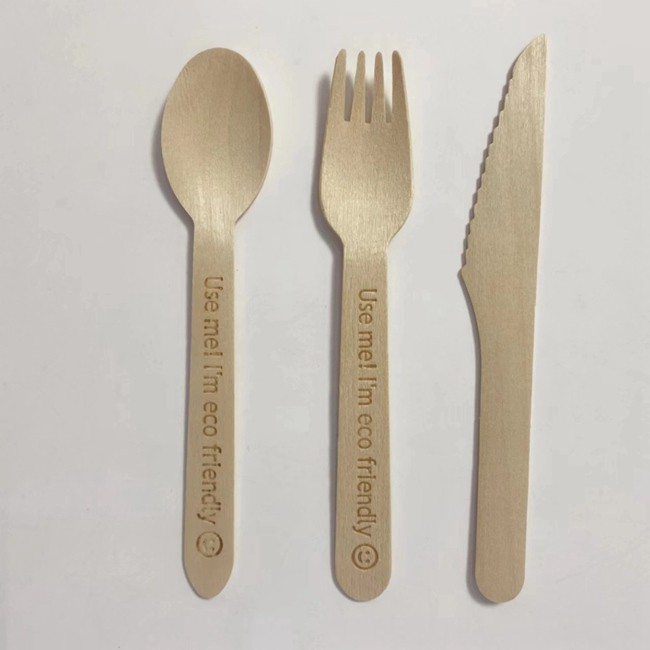
Biodegradable knives and forks have emerged as a sustainable alternative to traditional plastic cutlery, offering an eco-friendly solution for dining on the go. As the world becomes increasingly aware of the environmental impact of single-use plastics, these utensils made from natural, biodegradable materials are gaining popularity. In this article, we will explore the benefits, types, and considerations of using biodegradable knives and forks.
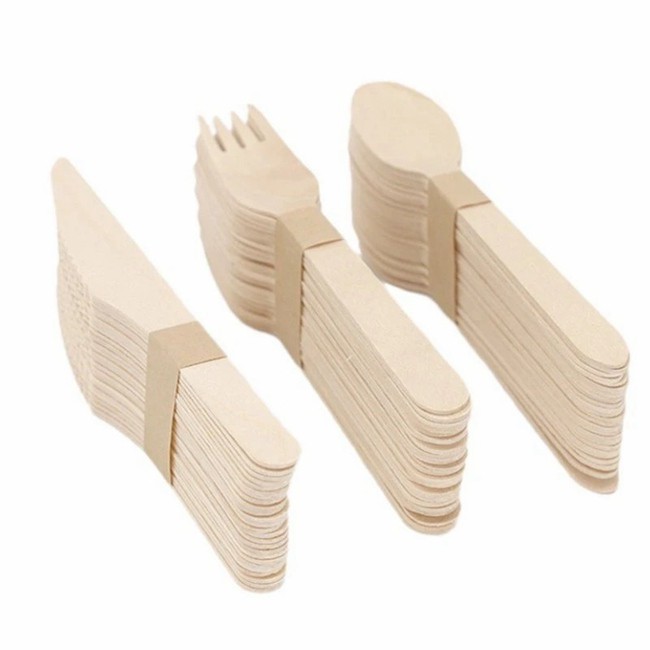
Degradable tableware refers to tableware products that can gradually degrade and eventually return to nature through the decomposition of microorganisms in the natural environment. Compared with traditional plastic tableware, biodegradable tableware does not cause long-term pollution to the environment after use, effectively alleviating the problem of "white pollution". This type of tableware is made from renewable resources such as corn starch, sugarcane bagasse, and bamboo fiber, processed through special techniques, and has good biodegradability.
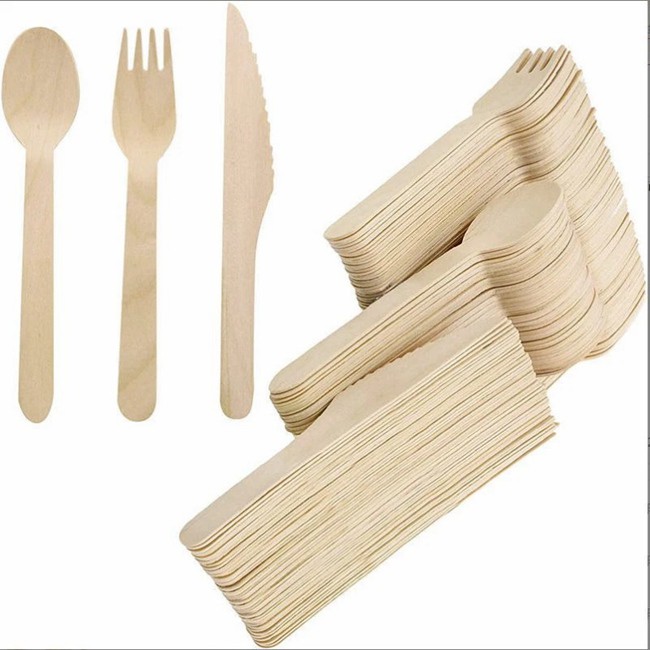
Recommended products
